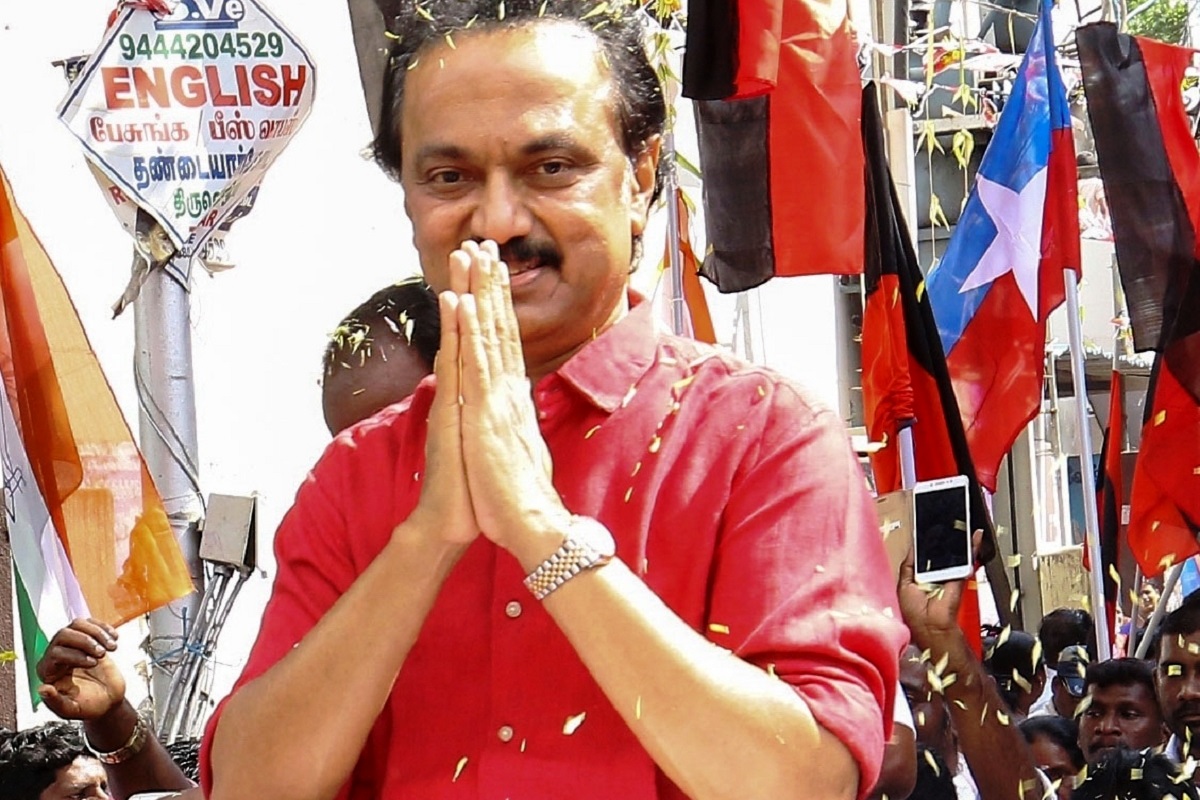After a gap of three years when Tamil Nadu was remote-controlled by the BJP government at the Centre, Dravidian rule returned to the State on 7 May when MK Stalin, president of the Dravida Munnetra Kazhagam, was sworn in as Chief Minister. He and his 33-member ministerial team, in keeping with the Dravidian secular tradition, took their oath of office and secrecy under their “conscience.”
Within five hours of occupying Fort St George, Stalin signed five files to implement five of the important promises made in the DMK’ election manifesto, bringing much relief to the groaning masses. Apart from offering Rs 4,000 each as Covid19 relief to family cardholders and providing free travel for women in city government buses, retail price of milk was reduced by Rs 3 a litre while rise in price is the order of the day.
Advertisement
The ruling AIADMK and its allies were entirely out of Chennai. The Tamil Nadu electorate has expressed in clear terms its unwillingness to give any room for non-Dravidian forces. The AIADMK believed, mistakenly perhaps, that the popularity of Prime Minister Narendra Modi and the spread of Hindutva politics across the nation will overcome Dravidian hegemony and enable it to score a hat-trick.
However, the BJP managed to re-enter the Tamil Nadu Assembly after an absence of two decades, but it was by hitching a piggy-back ride on the AIADMK, its senior alliance partner. Instead of blaming the previous government for the horrendous problems left behind, Stalin adopted a statesman-like approach by advising his cadre to get on with the work ahead with confidence. He had vowed to make Tamil Nadu the best place to live in India.
“I do not treat myself as the Chief Minister, but as a frontline worker. Governance is not a bed of roses, but full of thorns,” he wrote in ‘Murasoli’, official organ of the DMK. Promising a clean and transparent administration, he said the DMK assumed office at a time Covid-19 had opened its fangs. He said Covid treatment expenses in private hospitals would be paid by the government under the State’s health insurance scheme.
Steps are being taken on a war footing to operationalise all defunct oxygen plants across Tamil Nadu to treat Covid-19 patients and to supply to other States. This is in sharp contrast to the attitude of the outgoing Chief Minister Edappadi Palaniswami who was reluctant to reopen closed oxygen plants. Corona Relief Kits containing 13 grocery items will be distributed free of cost to 2.11 crore family cardholders from 3 June for which the Tamil Nadu Civil Supplies Corporation has already floated tenders.
International tenders have been floated to procure Covid-19 vaccines to hasten vaccination of people in the 18 to 45 age group. The sleepy Chennai Corporation was given a new commissioner, Gagandeep Singh Bedi, whose dynamism and expertise in disaster management is well known. The only fly in the ointment is the State’s finances.
For the first time in the history of Tamil Nadu, the AIADMK government was borrowing money to meet compulsory expenses like payment of interest and salaries. Reviving and restructuring the State’s economy is a challenging task for the new government.











